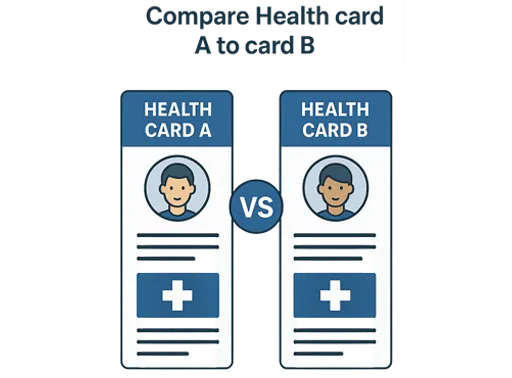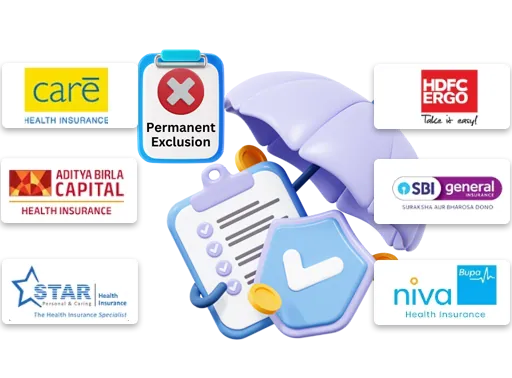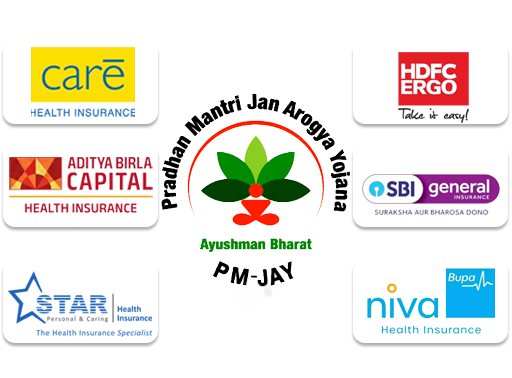Health Insurance Deductibles



Copay Vs Deductibles

Lives In: Delhi, NCR Expertise: Health & Term Insurance Simran has an experience of 4 years in content writing. She transitioned from hospitality and digital marketing to the insurance industry after her emerging interest in how vast insurance is. With her ability to write complex insurance concepts in a simple, relatable manner, she keeps her audience hooked and solves their doubts smoothly.
Reviewed By:

Raj Kumar has more than a decade of experience in driving product knowledge and sales in the health insurance sector. His data-focused approach towards business planning, manpower management, and strategic decision-making has elevated insurance awareness within and beyond our organisation.
Updated on Jul 09, 2025 4 min read
Deductibles in Health Insurance
Before buying a health insurance policy, you need to understand all its related aspects. Ignoring such components of health insurance may cause several hindrances at the time of claim settlement. One such term that you may come across while purchasing a health policy is the medical insurance deductible.
To learn more about deductibles in health plans, read on and explore all about deductibles and how they help in choosing an ideal health plan for you and your family.
What are Deductibles in Medical Insurance?
A deductible is a pre-decided amount that the policyholder needs to pay before claiming their health policy. But here’s a catch for you! If your medical bills have not crossed your policy’s deductible limit, the insurance company will not pay anything. On the other hand, if your total medical expenses cross over the deductible amount, you need to pay your deductible first and the rest billed amount will be paid by your insurer. But when the claim amount does not reach your deductible amount, your claim will be rejected straight.
Let us understand the concept of deductibles in a better way with an example:-
Mr. Abhay and Mr. Anand have the same health insurance policy with a sum insured of 10 lakhs and they choose to pay a deductible of INR 1 lakh each. One day, both of them were riding a bike and met with an accident due to which they had to get hospitalized for treatment.
- In the case of Abhay
Abhay got a medical bill for his treatment which cost him INR 1.5 lakh. He needs to pay INR 1 lakh of his bill (the preset deductible) from the deductible limit of his policy. And the rest INR 50,000 will be paid by his insurance provider. - In the case of Anand
Anand received a medical bill for the treatment that has cost him a sum of INR 85,000. In this situation, he needs to pay the total amount of his bill from his deductible limit. The insurance company will not pay him anything, because the claim amount of Anand is less than the total amount of his deductible limit. The separate medical bills for Anand and Abhay are 1.5 lakhs and INR 85,000 respectively. In such a situation, Mr Anand will have to pay INR 1 lakh of his treatment from the deductible limit and the rest INR 50,000 will be payable by the insurance company. But, in the case of Mr Abhay, the whole medical bill has to be paid by him and his insurer is not responsible for accepting his claim. Because Abhay’s treatment cost didn’t meet the deductible limit of his policy.
What are the Types of Deductibles?
In India, there are two types of deductibles in health insurance: Compulsory and Voluntary. Let’s read more about them:
-
Compulsory Deductible
A Compulsory deductible is a fixed amount that needs to be paid by the policyholder whenever they file for a claim. And the medical expenses crossing over this limit would be paid by your insurer. -
Voluntary Deductible
To lower the premium amount, the insurance companies give an option to the policyholder to voluntarily choose the deductible health insurance premiums. The deductible amount chosen by the policyholder often depends upon their financial affordability and medical expenses.
Why do Insurance policies have Deductibles?
Deductibles prevent people from going for unnecessary treatments or hospitalizations and serve as a deterrent from raising small and trivial claims. With the deductible clause available in your health insurance policy, you will not file for minor claims. This clause is beneficial for you and the insurer as when you avoid making unnecessary claims you can avail of the No Claim Bonus Benefit, whereas, the insurer will need only to cover legitimate claims.
How Does Deductible in Health Insurance Work?
Deductible works on the principle of sharing an amount of all the medical expenses with your insurer. The amount incurred on healthcare treatment that the policyholder agrees to bear is paid out of their pocket. In such conditions, the amount of monthly premiums for your policy is decreased. So what happens is, when an individual initiates the procedure of buying a health insurance policy, the insurance provider offers them to choose from either a compulsory or a voluntary deductible with their policy terms and conditions. The amount on which the policyholder agrees to share the medical expenses with their insurer is imposed every time they make a claim.
But here’s a catch for you! If you are unable to meet the deductible limit of your policy during your mediclaim, all the healthcare expenses will be paid by yourselves. This condition helps the insurance company eliminate the chances of frequent claims. However, if this limit crosses, you will get reimbursement or a claim settlement for all the medical services like hospitalization, diagnosis or lab tests, medications, doctor’s consultations, etc.
Factors Impacting the Deductible Amount in Health Insurance Policy?
The following are the factors that decide the amount of health insurance deductible to be imposed with your policy, read further:-
| Factors | Explanation |
|---|---|
| Age criteria | Young policyholders have generally lower deductibles to pay than adult policyholders or those who have crossed 30-35 years of age. |
| Type of policy | The amount of deductibles also depends upon the type of plan that you’re buying. So, you should check the deductible clause of your policy first. |
| Residential zone | The residence zone of the policyholder is also another factor in deciding the deductibles in higher amounts. Tier 1 and tier 2 cities or metropolitan regions cost much more for medical treatment than rural, semi-urban areas. |
| Comprehensivity | The comprehensive coverage given to the policyholder is taken into account while setting a range for deductible amounts. |
| Gender | Female policyholders are given policies with less deductible amounts than male policyholders. But this criteria depends upon the insurance provider you choose. |
| Networking hospitals | If the insurance companies have a generous number of networking hospitals that may provide you with the best cashless Medicare, you are more likely to get a higher deductible. |
| Medical History | If the policyholder has a medical condition or a pre-existing disease, there might be a higher deductible amount. |
| Lifestyle | The amount of deductible is also decided through the lifestyle of the policyholder. A policyholder who is a consumer of alcoholic products and smokes cigarettes very often is more likely to pay higher deductibles than a healthy individual. |
How is Deductible different from Co-payment?
The main difference between copayment and medical insurance deductible is the amount that the policyholders have to pay. Deductibles are generally higher than co-pays but are paid only once a year. On the other hand, co-payments are ongoing. Policyholders must pay each time they apply for a claim, no matter how many co-payments they have paid during the year. Also, co-payment is only a part of health insurance, but the deductible plays a part in health and general insurance.
Advantages of Deductibles in Health Insurance
Know here the advantages of a health insurance plan with deductibles:-
| Benefits | Explanation |
|---|---|
| Financial support | Higher deductible health insurance plans give freedom for highly expensive or critical healthcare expenses. |
| Mindful claims | The policyholders tend to make mindful claims against their medical insurance, instead of frequent claims. |
| Advanced medicare | Encourages high-end and advanced medical healthcare at affordable premiums without worrying about hefty medical bills |
| Availing discounts | If you choose voluntary deductibles, you can enjoy medical healthcare at discounted or affordable prices. |
| No-claim bonus (NCB) | If you don’t claim your policy in the policy year, you’re more likely to get a no-claim bonus on your policy renewal. |
Disadvantages of Deductibles in Health Insurance
Medical insurance deductibles also have some drawbacks to it, that you must know:-
| Drawbacks | Component |
|---|---|
| Out-of-pocket expenditure | In the case of lower deductible insurance, the policyholder has to pay out of their pocket every time they get admitted to a hospital. |
| Limited networking hospitals | If your insurance company has very less options for networking hospitals, you’ll have to pay the majority of the medical bills out-of-pocket. |
| Delayed emergency care | Settling down the deductible can be a little tricky in times of emergency and can also cause delayed medical care. |
| Limited time coverage | When the deductible limit is not yet exhausted, you will not be able to use the sum insured to make a claim. |
Wrapping It Up
The choice of deductible depends on your budget and medical requirements. Going with a higher deductible will indeed lower your premiums. Always remember that in case your hospital-generated medical bill does not exceed the deductible amount of your insurance plan, you have to pay it all by yourself.
A health plan is a vital advantage to cover your medical expenses in times of an unannounced emergency. So, you need to make a wise decision before buying a suitable health plan that fulfils your requirements. It’s always good to choose deductible plans on the higher side if you are financially secure and can afford to pay your medical bills. In case, you want your insurer to pay the major amount of your medical bills (if you are financially unsure), go for a lower deductible plan.
Consult for Personalized Insurance Advice

But how does it work?
Schedule a call with India’s number 1 trusted advisor with a 4.5+ rating on Google. We are not your average insurance agents. Our advisors are experts in their insurance knowledge and will give you the right information at the right time. The service is free of cost! Don’t worry, we won’t spam as we value your time.
Health Insurer Network Hospitals
Deductibles in Health Insurance: FAQs
1. In which condition should I buy a health insurance policy with a deductible?
If you are willing to pay less with premiums and get comprehensive coverage with the policy, you should opt for a deductible health insurance plan.
2. Is the deductible health insurance premium lower than a standard health plan?
Yes, because the policyholder agrees to pay some amount out of their pocket while making a claim, they’re likely to get a lower premium.
3. Is it mandatory to fulfil the amount of deductible for getting a claim?
Yes, this is a mandatory condition of getting a deductible medical insurance. If the policyholder does not
4. Should I choose for a low medical insurance deductible?
Keep in mind, that choosing a health plan that has a low deductible, your premiums will be higher. The policyholder with low deductibles is a high-risk customer for the insurance companies because they’re more prone to make frequent claims.
Health Insurance Companies
Know More About Health Insurance Companies



















